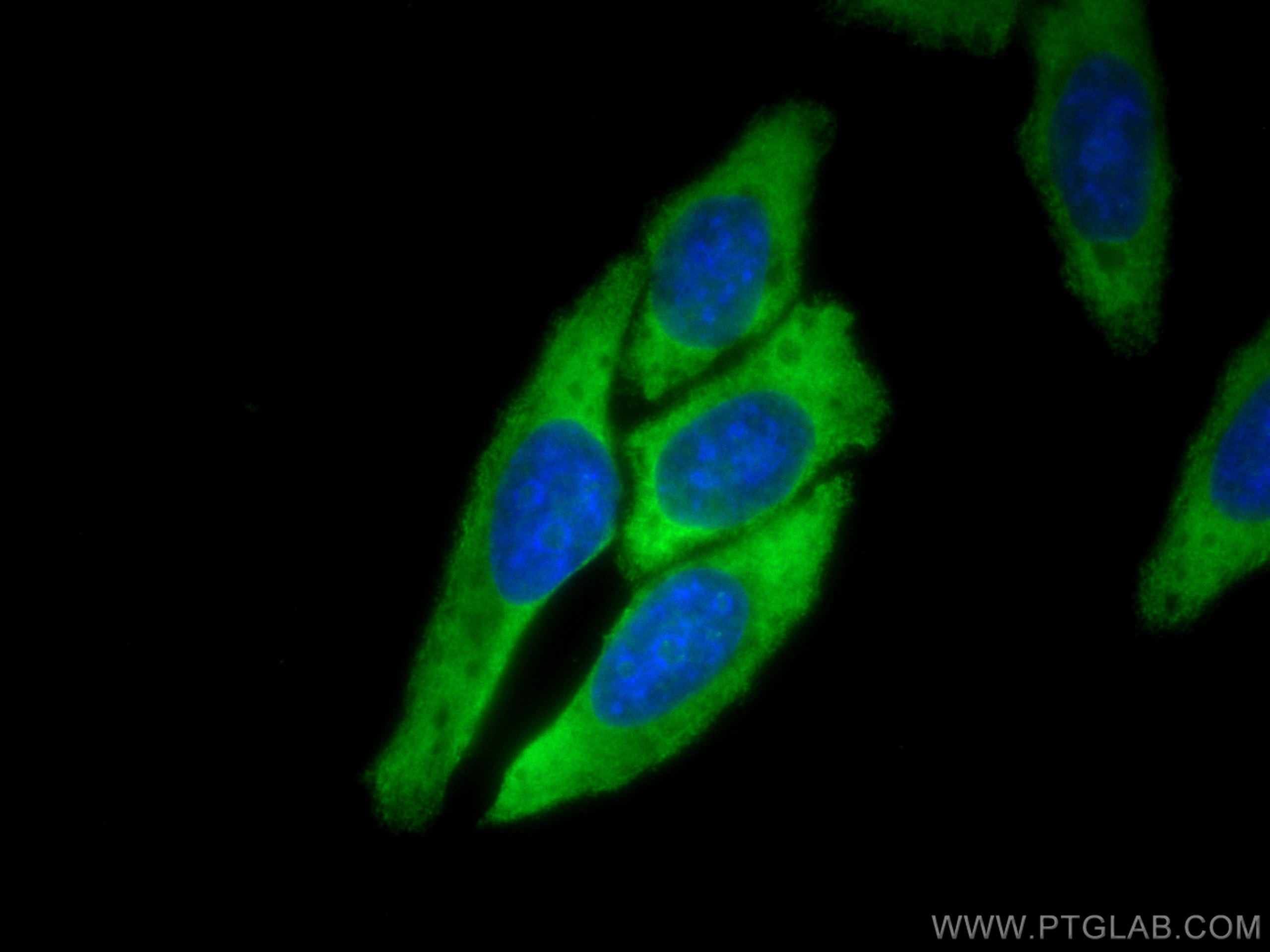- Featured Product
- KD/KO Validated
EIF2A/CDA02 Monoklonaler Antikörper
EIF2A/CDA02 Monoklonal Antikörper für IF/ICC
Wirt / Isotyp
Maus / IgG1
Getestete Reaktivität
human, Maus, Ratte
Anwendung
IF/ICC
Konjugation
CoraLite® Plus 488 Fluorescent Dye
CloneNo.
1G7H4
Kat-Nr. : CL488-66482
Synonyme
Geprüfte Anwendungen
| Erfolgreiche Detektion in IF/ICC | HepG2-Zellen |
Empfohlene Verdünnung
| Anwendung | Verdünnung |
|---|---|
| Immunfluoreszenz (IF)/ICC | IF/ICC : 1:50-1:500 |
| It is recommended that this reagent should be titrated in each testing system to obtain optimal results. | |
| Sample-dependent, check data in validation data gallery | |
Produktinformation
CL488-66482 bindet in IF/ICC EIF2A/CDA02 und zeigt Reaktivität mit human, Maus, Ratten
| Getestete Reaktivität | human, Maus, Ratte |
| Wirt / Isotyp | Maus / IgG1 |
| Klonalität | Monoklonal |
| Typ | Antikörper |
| Immunogen | EIF2A/CDA02 fusion protein Ag22041 |
| Vollständiger Name | eukaryotic translation initiation factor 2A, 65kDa |
| Berechnetes Molekulargewicht | 65 kDa |
| Beobachtetes Molekulargewicht | 65 kDa |
| GenBank-Zugangsnummer | BC011885 |
| Gene symbol | EIF2A |
| Gene ID (NCBI) | 83939 |
| Konjugation | CoraLite® Plus 488 Fluorescent Dye |
| Excitation/Emission maxima wavelengths | 493 nm / 522 nm |
| Form | Liquid |
| Reinigungsmethode | Protein-G-Reinigung |
| Lagerungspuffer | PBS with 50% glycerol, 0.05% Proclin300, 0.5% BSA |
| Lagerungsbedingungen | Bei -20°C lagern. Vor Licht schützen. Nach dem Versand ein Jahr stabil. Aliquotieren ist bei -20oC Lagerung nicht notwendig. 20ul Größen enthalten 0,1% BSA. |
Hintergrundinformationen
EIF2A, also named as CDA02, MSTP004 and MSTP089, belongs to the WD repeat EIF2A family. It functions in the early steps of protein synthesis of a small number of specific mRNAs. EIF2A, an alternative initiator tRNA-binding protein, has a key role in the translation of HCV mRNA during HCV infection, in turn promoting eIF2a phosphorylation by activating the eIF2a kinase PKR.
Protokolle
| PRODUKTSPEZIFISCHE PROTOKOLLE | |
|---|---|
| IF protocol for CL Plus 488 EIF2A/CDA02 antibody CL488-66482 | Protokoll herunterladen |
| STANDARD-PROTOKOLLE | |
|---|---|
| Klicken Sie hier, um unsere Standardprotokolle anzuzeigen |


